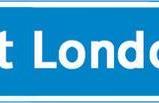Having an assistant is an asset, but if you are used to doing everything yourself, you need to establish some ground rules to make the most of their time ã and yours.
To avoid any confusion, set out exactly what your PA's role is. Ask colleagues who have PAs how things are organised in their offices and what kind of responsibilities their assistants take on. Remember, delegating tasks to your PA has many advantages; it shows that you respect and appreciate their input, which in turn builds loyalty. It also creates a more fulfilling role for your PA and it can be helpful to have another viewpoint on business issues, especially from someone who is on your side.
It's good idea to write a list of areas you would like your PA to be involved in and then discuss this list together. PAs are often experienced, so be prepared to listen and modify your plan.
The key is teamwork: working together to get the best results. Your good intentions to act as a team will fall apart if you don't make the effort to keep your PA informed about what you are doing, where you are going and who you are seeing. Discuss future plans regularly and keep them updated on any changes. If you are used to acting for yourself, this can be a hard habit to get into, but it's one that will pay off ã by keeping in touch you will know of any vital developments in your absence.
If all goes well, your assistant should become invaluable to you ã so how do you manage when they go on holiday? Ask your assistant's advice about the best way to cover their absence; they may be happy to leave written instructions for a temp or brief someone on office procedures for half a day before they go. Make sure you know about these instructions so that you can help the temporary cover.
Edinburgh is crying out for newly qualified QSs. Scottish firms suffer as their graduates are lured away by practices in London
A good PA can transform your life. To get the best work from yours, don't take their initiative and responsibility for granted. Take the time to acknowledge extra effort and show your appreciation. A little praise goes a long way.
I am a recently qualified chartered QS working for a practice in London. I may need to relocate to Edinburgh and would like to know what is happening in the job market.
If your relocation does go ahead, I don't think finding a job will be one of your worries. The job market in Edinburgh is crying out for young newly qualified QSs. Many firms in Scotland suffer as their graduates are lured away by practices in London, leaving an extreme shortage of mid-level surveyors.
Salaries, in fact, are comparable: a newly chartered quantity surveyor working in London could expect to earn ôÈ28,000 plus a car. In Edinburgh, this is only slightly lower at ôÈ25,000 and a car. The lower cost of living and increase in quality of life more than compensate for this small drop.





























